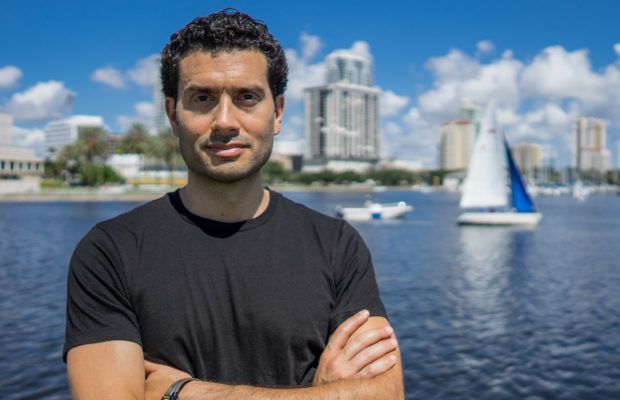On Tuesday, March 28, Andrew Bustamante spoke to an audience of Tech students about his experiences working for the government in the world of intelligence gathering operations.
The presentation was hosted by Tech’s chapter of the Alexander Hamilton Society, an organization with the goal of promoting the importance of a strong American presence in global politics as America is one of the only financial superpowers in the world that fully acts as a democracy.
Bustamante, a former Central Intelligence Agency (CIA) operative, founded EverydaySpy with the goal of bringing the skills he learned in the field to the public.
He opened his presentation by warning the audience about his unique bluntness and candor and continued by explaining the importance of this trait for his success as an intelligence
operative for the CIA.
He started by sharing his views on the reality of the inner workings of global politics.
Bustamante discussed how the United States is the only of the top five wealthiest nations to function as a democracy, while the other four are monarchies, authoritarian or another non-democratic forms of government.
Similar to the political philosophy of Alexander Hamilton and the Federalists, Bustamante believes that a strong American government is crucial for the safety and wellbeing of Americans.
Further, he shared that he believes that a strong American government is important for protecting the country’s unique position as a wealthy democratic nation.
He continued by identifying countries that pose a significant threat to America’s position as a global superpower.
In particular, Bustamante highlighted China and India as particular threats to the U.S. now and in the near future.
China currently has power over significant parts of global supply chains, a large population and a large military while India has a growing population and is industrializing at a similar rate to what China was doing 20 years ago as they were rising to global power.
The floor was then opened for a Q&A session with the audience. Bustamante discussed the changing landscape of intelligence collection in a world that is increasingly digital.
He explained that the majority of intelligence collection is executed via signal collection, which starts the process of individual investigations, but that human intelligence collection is still critical for the most valuable pieces of information.
He then discussed his experiences as a CIA operative, noting the differences in collecting information from different parts of the world. He discussed that developing nations are much more efficient to gather information from due to the nature of the law enforcement structures in these countries.
In contrast, he discussed the difficulty of collecting information within developed nations.
Bustamante addressed concerns about what data governments are collecting from citizens. Bustamante explained that governments buy data in bulk from companies for the purpose of performing large metadata analysis to identify indicators of criminal behavior.
He assured the audience that the government does not care about their “weird internet habits,” just about people committing actual crimes.
Bustamante then pivoted to discuss how to get a job at an intelligence agency like the CIA.
He explained that, generally speaking, a clean academic and criminal record are always good.
However, he emphasized that for human intelligence operatives, government agencies are really looking for people that are able to break the rules without getting caught.
He continued by warning that success in these positions are highly dependent on a moral and ethical flexibility that justifies the means in the moment for an ultimate end goal of ensuring national security.
Bustamante continued by identifying Tech as an institute that government agencies heavily recruit and hire from due to a few key characteristics of the Institute.
Specifically, the Institute has been at an advantageous position as it offers a top-notch education without the globally recognizable name that has the potential to put graduates from famous schools (such as Ivy League universities) at risk when on field operations internationally.
Bustamante then discussed what he identified to be one of the largest threats for the foreseeable future: nuclear weapons.
He continued in explaining his position that the general public’s understanding of a nuclear threat is inaccurate to the current reality of the situation by identifying that the real value of nuclear weapons in today’s global world is simply the threat or possibility of a nuclear attack.
Bustamante finished by sharing his key to success for American politics: don’t focus on the individual issues, focus on the larger goal of protecting the country’s position in global politics.
